Plex: 6 December 2023
LBW LLM; Open Infrastructure Stack for Landscape Regeneration;AI, Moloch & the Meta Crises; Tweaking Regulations Creatively; What We Must Do; RedCan Graffiti Jam; Reflections on COP28; 18 Days in Tuscany; The Lottery Ticket

The Biweekly Plex Dispatch is an inter-community newspaper published by Collective Sense Commons on first and third Wednesdays of each month. Price per issue: 1 USD, or your choice of amount (even zero).
In This Issue
- LBW LLM (Gil Friend)
- Open Infrastructure Stack for Landscape Regeneration (David Witzel)
- AI, Moloch & the Meta Crises (Wendy McLean)
- Tweaking Regulations Creatively (Kevin Jones)
- What We Must Do (Douglass Carmichael)
- RedCan Graffiti Jam (Todd Hoskins)
- Reflections on COP28 (Klaus Mager)
- 18 Days in Tuscany, part 2 (Ken Homer)
- The Lottery Ticket (Ken Homer)
LBW LLM
by Gil Friend
Over the past four years, more than 700 people have engaged in an ongoing conversation about the challenge of living between worlds…in this liminal time when, as Antonio Gramsci put it 100 years ago, “the old world is dying, and a new world struggles to be born.”
Now, in what Adam Tooze dubbed the polycrisis (hint: there is no “the”), what Daniel Schmachtenberger perhaps more accurately called metacrisis, what Gramsci more viscerally called the time of monsters, what Chauncey Bell simply calls a mess, we struggle to find our footing. To find our bearings. To find our way. To find meaning. To live in these times, with grace, dignity, and power.
The conversations have been profound and provocative, covering topics that have included climate and covid (where we started in early 2020) to systems change, hope, capital-ism, and “can we afford a future?” (You can prowl the video archives here. And while you’re there, please like and subscribe!)
This month it will be experimental as well. We’ve trained an LLM (a large language model, also known as “an AI”) on the entire corpus of our conversations, to see what would be like to have a probing conversation with ourselves—or, more accurately, with a representation of ourselves that offers a different way of finding pattern (and perhaps meaning) then we do.
We hope you’ll join us to interrogate the beast, to see what it can and can’t do, to see how it might surprise us and what new conversations it might provoke in us, and to suggest whether and how we might develop it further. (And to see what tricks we have up our sleeves — some of which we think you’ve never seen before.)
Open Infrastructure Stack for Landscape Regeneration
by David Witzel
I would love your feedback on a concept document -- Creating an Open Infrastructure Stack for Landscape Regeneration: A Realization of Hope.
The notion was inspired by Dorn Cox’s book “The Great Regeneration: Ecological Agriculture, Open-Source Technology, and a Radical Vision of Hope”. It posits that open sourcing will help make abundant knowledge and processes that will help accelerate a regenerative future.
The big question is how to activate a self-sustaining business model that will create and improve the open assets.
You are welcome to join a zoom session on 12/8 at 9am PST / noon EST to present and discuss the concept.
charles blass
AI, Moloch & the Meta Crises - A Repository
by Wendy McLean
This year, I’ve been occasionally researching AI, capturing insights on how we might move forward in a responsible way. I’m cautiously optimistic.
My notes are now organized in Notion and made public for everyone, in service to the Commons, where you can view and comment.
I created a collaborative page here if you want to work on this repository with me. As always, I welcome your collaboration.
Happy Hanukkah to those who celebrate! ~ Wendy
Tweaking Regulations Creatively
by Kevin Jones
We are trying an end around on the rights of the river.
While working on an amendment to the town charter to make pollution illegal, rather than allowed within limits, as current regulations do, we are also looking to add biodiversity to the environmental assessment of a new riparian dorm project, so that they could not degrade biodiversity, which does the same thing as making pollution illegal.
A lot of time you can do more by tweaking regulations creatively and avoiding the limelight of legislation.
charles blass
What We Must Do
In the next few months
by Douglass Carmichael
What we must do in the next few months: Some of the pieces...
- Cut CO2 (we have to decide where)
- Make sure those who lose out are helped and at least have basic security, healthy food, and shelter
- Pay attention to energy needs. Not freeze, not wet-bulb death, cook food.
- Try to keep stronger personalities from shifting resources toward themselves.
- Keep a community history as best as you can.
- Daily community meetings open to all (learn to use OPEN SPACE technology)
What it comes down to, everything will change. Look around your room and make an assessment of the use of energy, usually heat, in the making of each one. We can assume never again.
Pay attention to history, especially related subjects such as Epicurus and his Garden school in classical Greece, to the Arts and Crafts Movement of the late 1800s. Aesthetics should guide every effort making the space attractive to work, play, and relax in.
RedCan Graffiti Jam
by Todd Hoskins
I shot these photos of the RedCan Graffiti Jam in October at a Tribal Broadband Bootcamp (TBB) on the Cheyenne River Sioux reservation. The Cheyenne River Sioux Telephone Authority, the host of this bootcamp with over a dozen tribes present, is the oldest tribal telecom in North America having formed in 1958. This was my fifth TBB in the past eighteen months representing the Tribal Resource Center and People-Centered Internet.






charles blass
Reflections on COP28
by Klaus Mager
Amidst the expected rancor of yet another COP, this one held in the most unlikely of places Dubai, and hosted by the CEO of an oil company, one bright light appeared. For the first time, the nations decided to integrate food into climate action. 130 countries signed, notable exception is India out of concern for food security.
The food system accounts for 31+% of total global emissions. That reality hit the Al Gore Climate Reality Project earlier this year, when I was able to make a presentation to their national farm bill team. Agriculture was measured in isolation at 11%, which didn’t account for transportation, refrigeration, synthetic nitrogen, food waste, deforestation etc. Al Gore had his agency expand on this concept and he then made a presentation in his typical over the top style, with interviews hosting Secretary of Agriculture Vilsack, and Senator Stabenow who leads the Senate Ag committee amongst others. Here is the recording (free registration required), still available until the end of December for anyone interested in food and agriculture, it’s an impressive 360 deep dive into the challenges facing our food system.
What has also come into focus is the concept of desertification of millions of acres of farmland due to the application of chemicals (nitrogen, phosphates, herbicides, insecticides) that harm the soil microorganisms that are the base of all life on land. That in turn causes the soil to release its carbon, and it no longer is able to absorb and hold water (explained in the presentation above). This causes a disruption in the hydrologic cycles, leading to prolonged periods of drought, followed by heavy precipitation with associated flooding. It accelerates the impacts of climate change, and has not been fully accounted for in most climate models. The Hydrologic Cycle
Just like the energy sector, the Petro chemical based food industry is resisting changes that would disrupt prevailing business models. Yet the sector has the capacity to not just reduce its emissions and damage to the environment, but actually reverse and go carbon negative, in the process repairing watersheds, biodiversity, nutrient quality of crops. Food for Thought.
In the short to medium term, focusing on adaptations in the food system is the proverbial low hanging fruit.
18 Days in Tuscany, part 2
by Ken Homer
More pix from Italy!
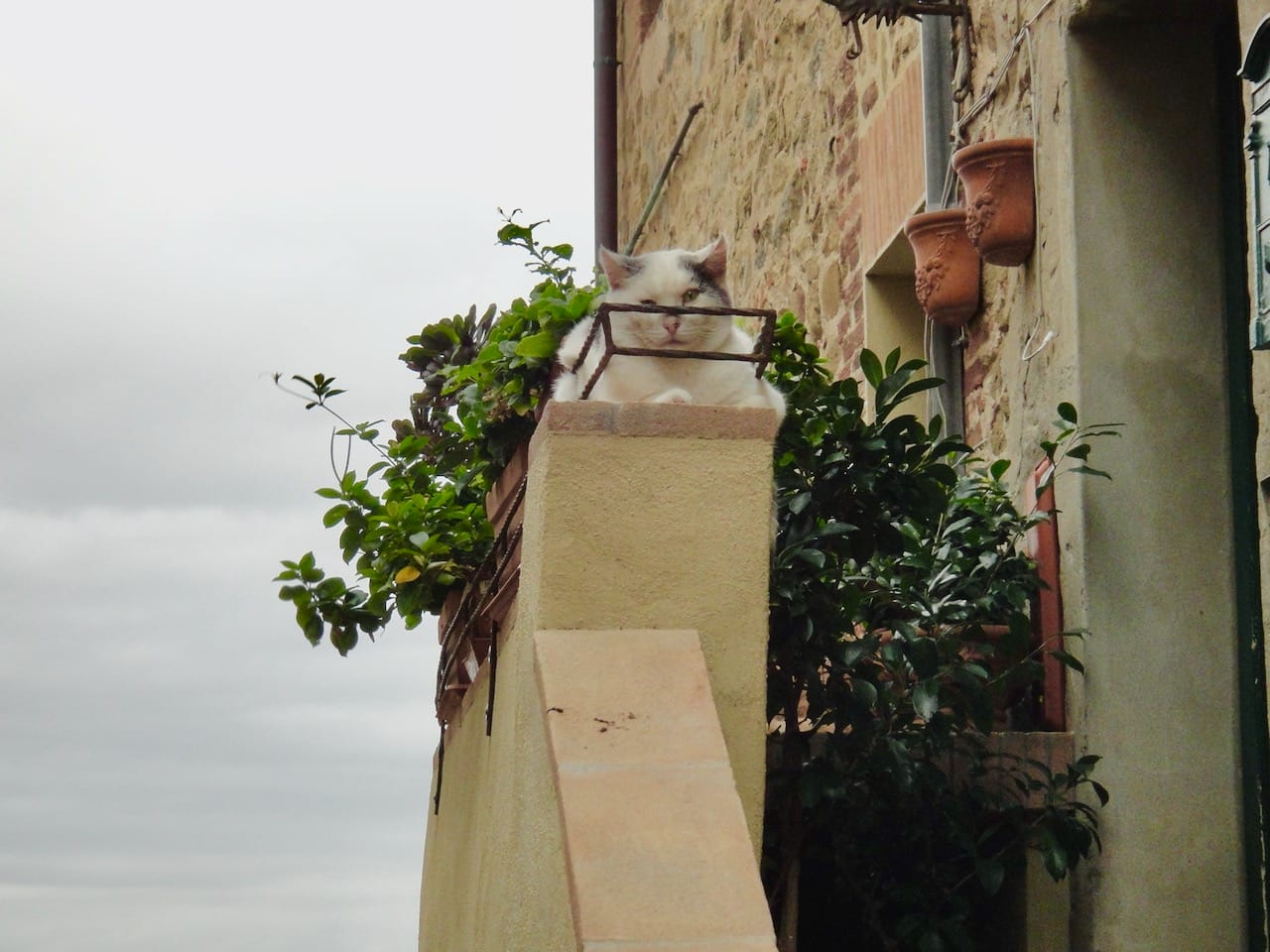
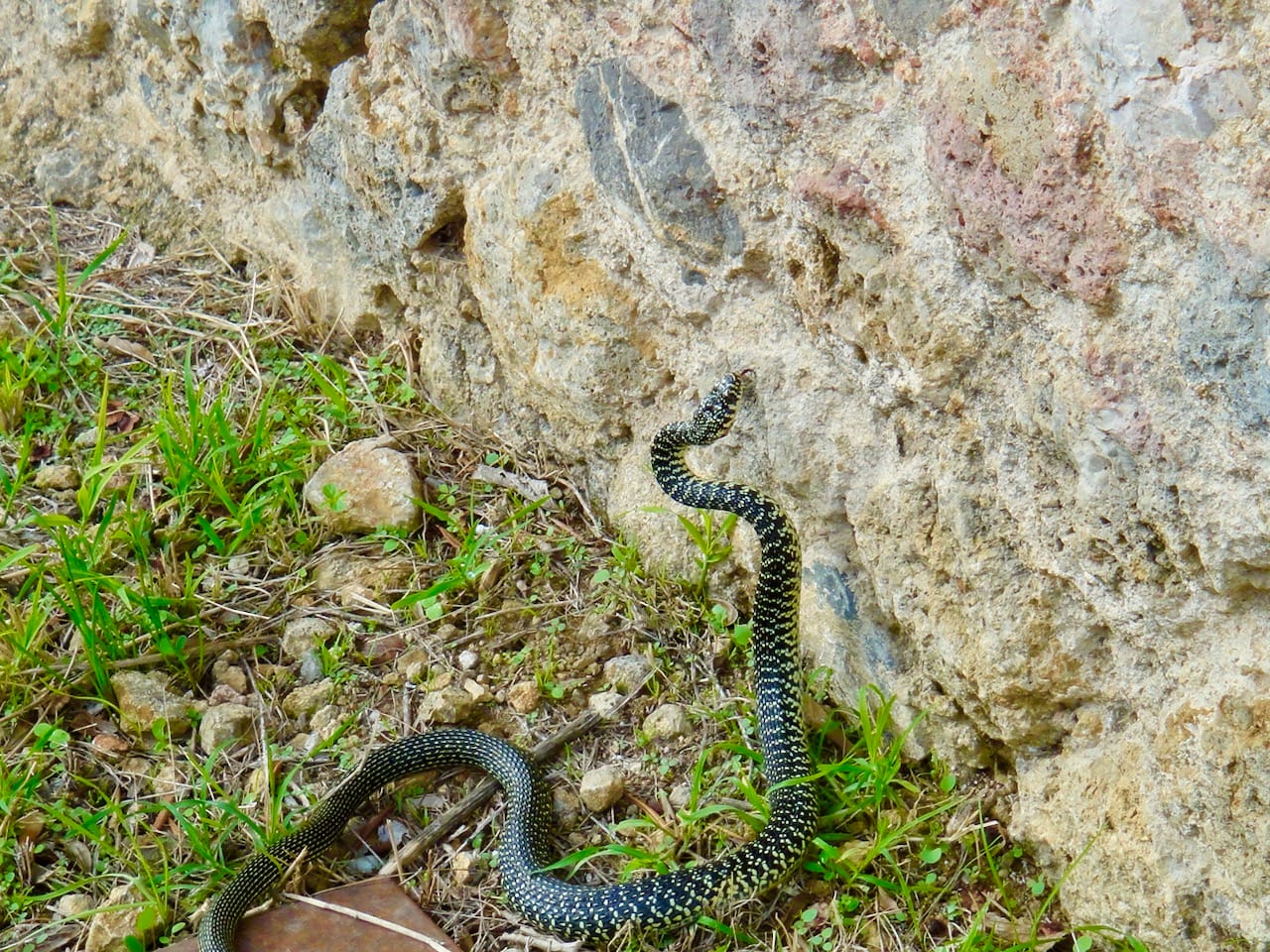
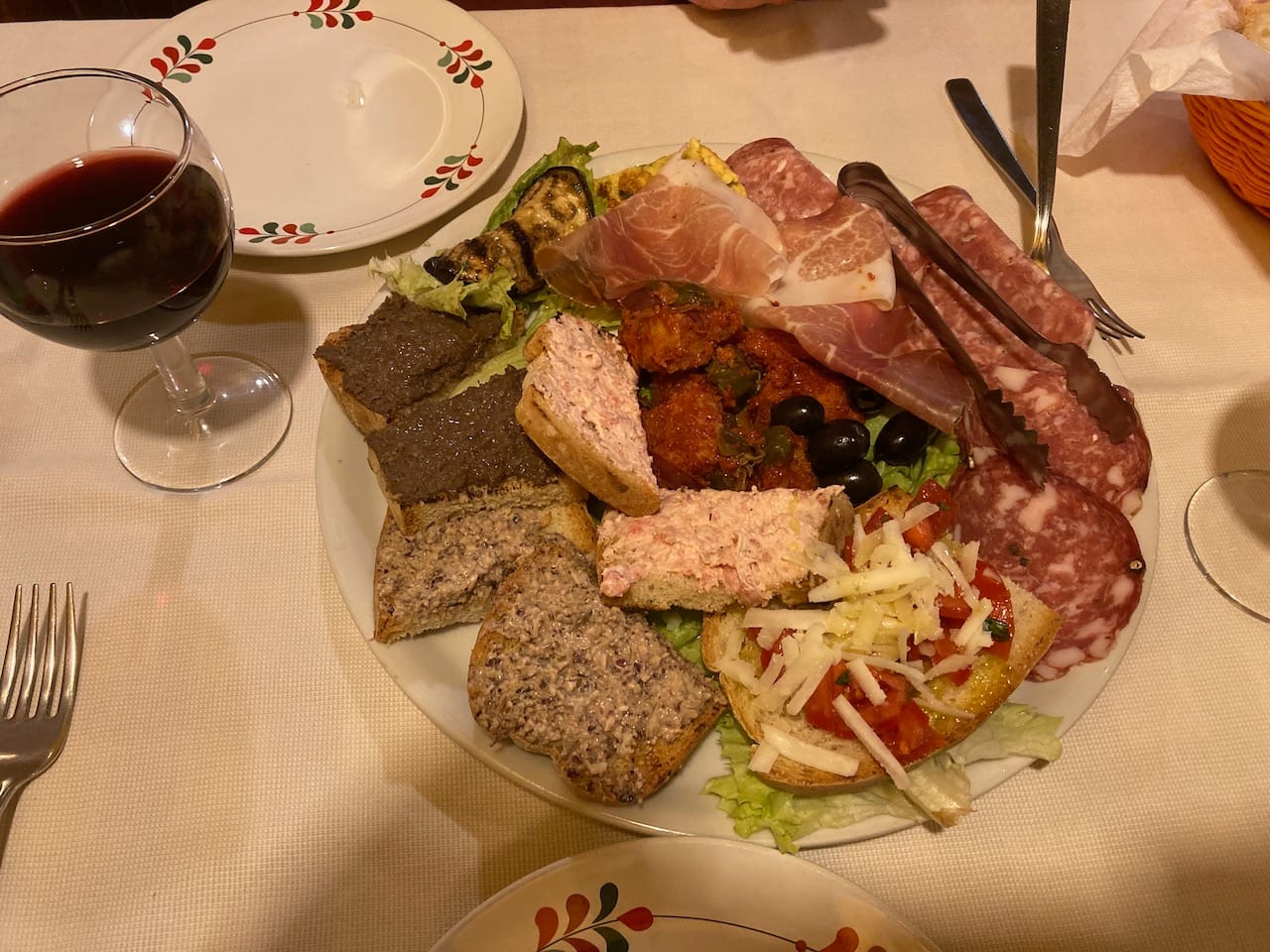
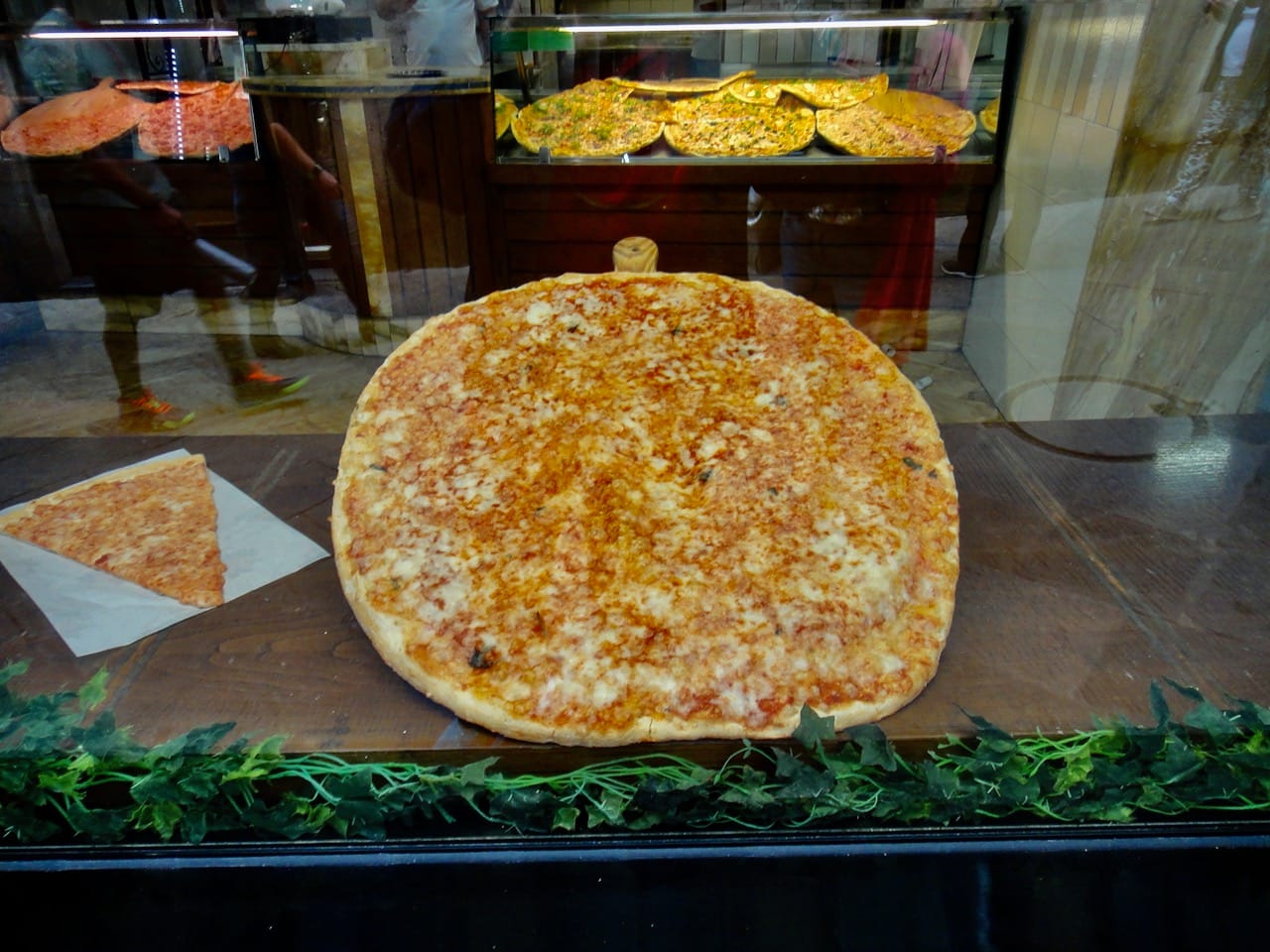
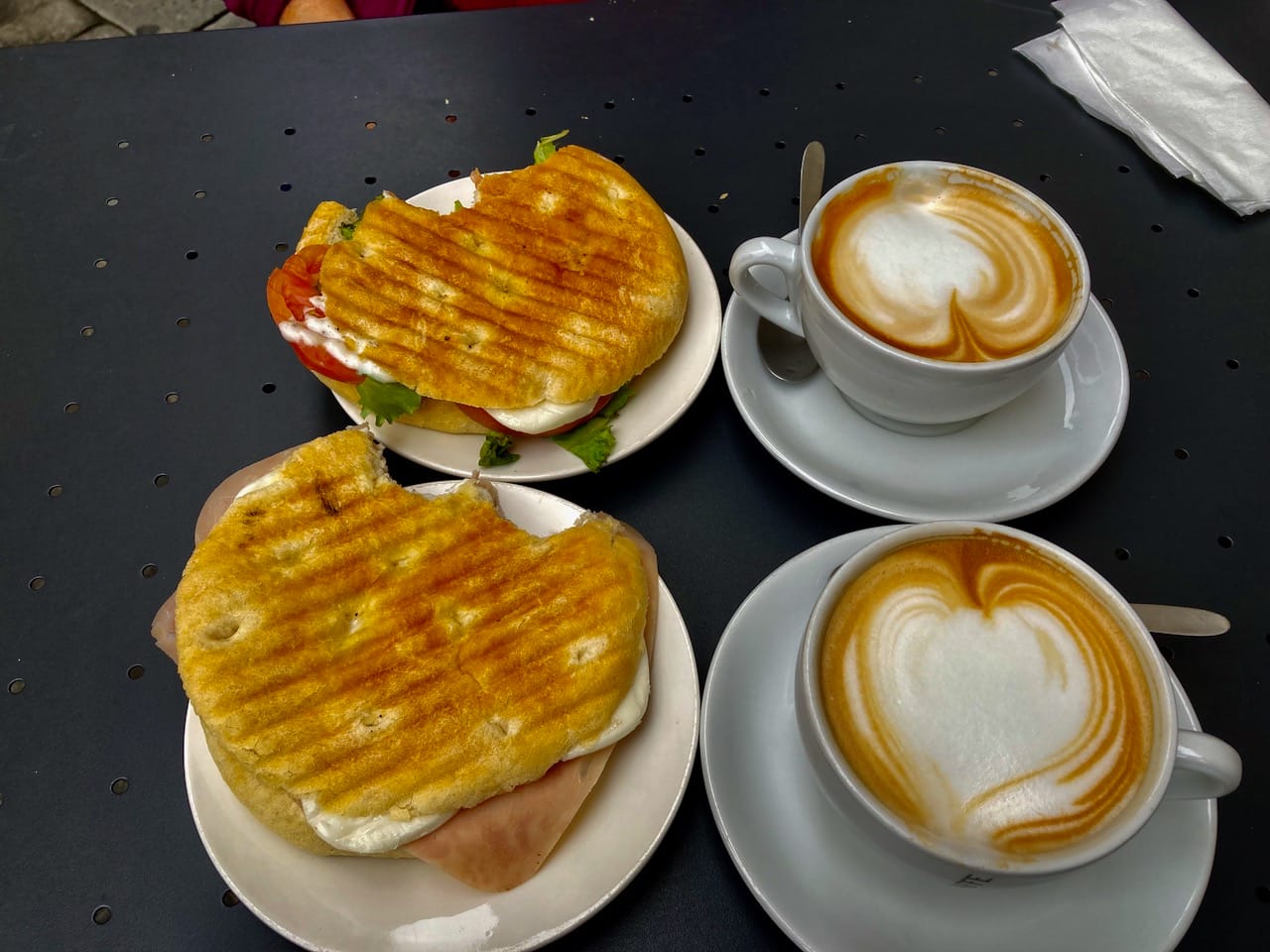
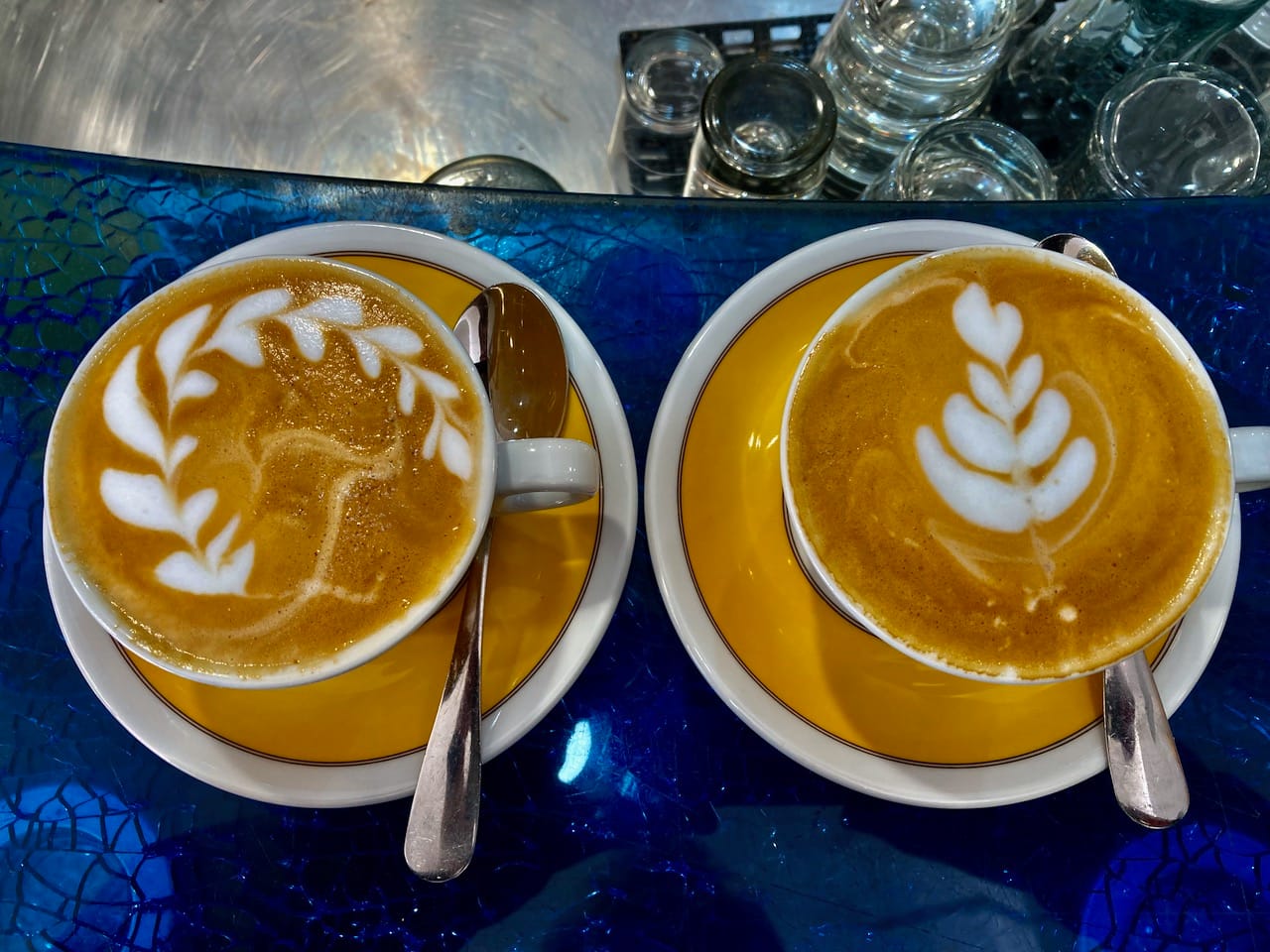
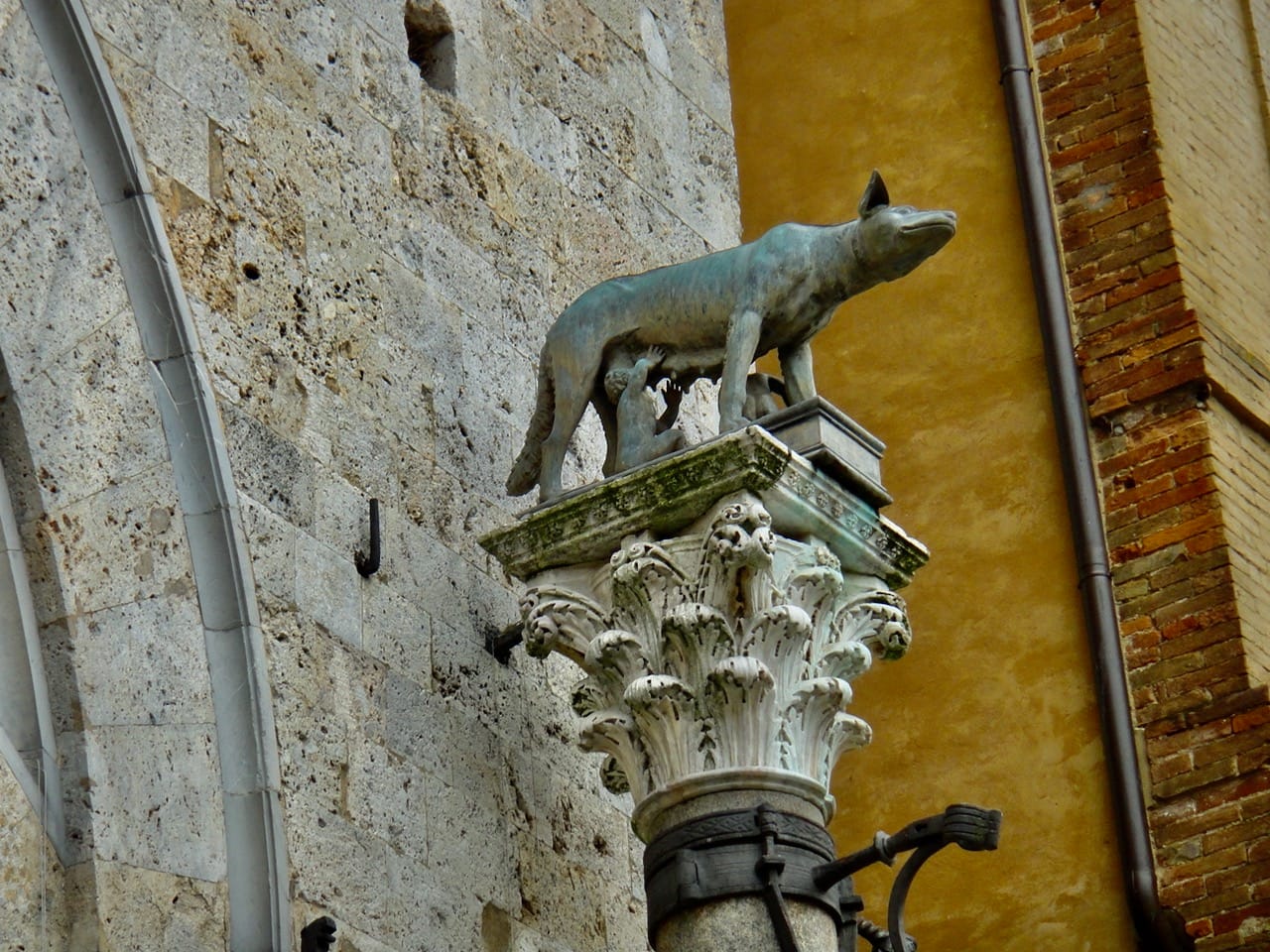
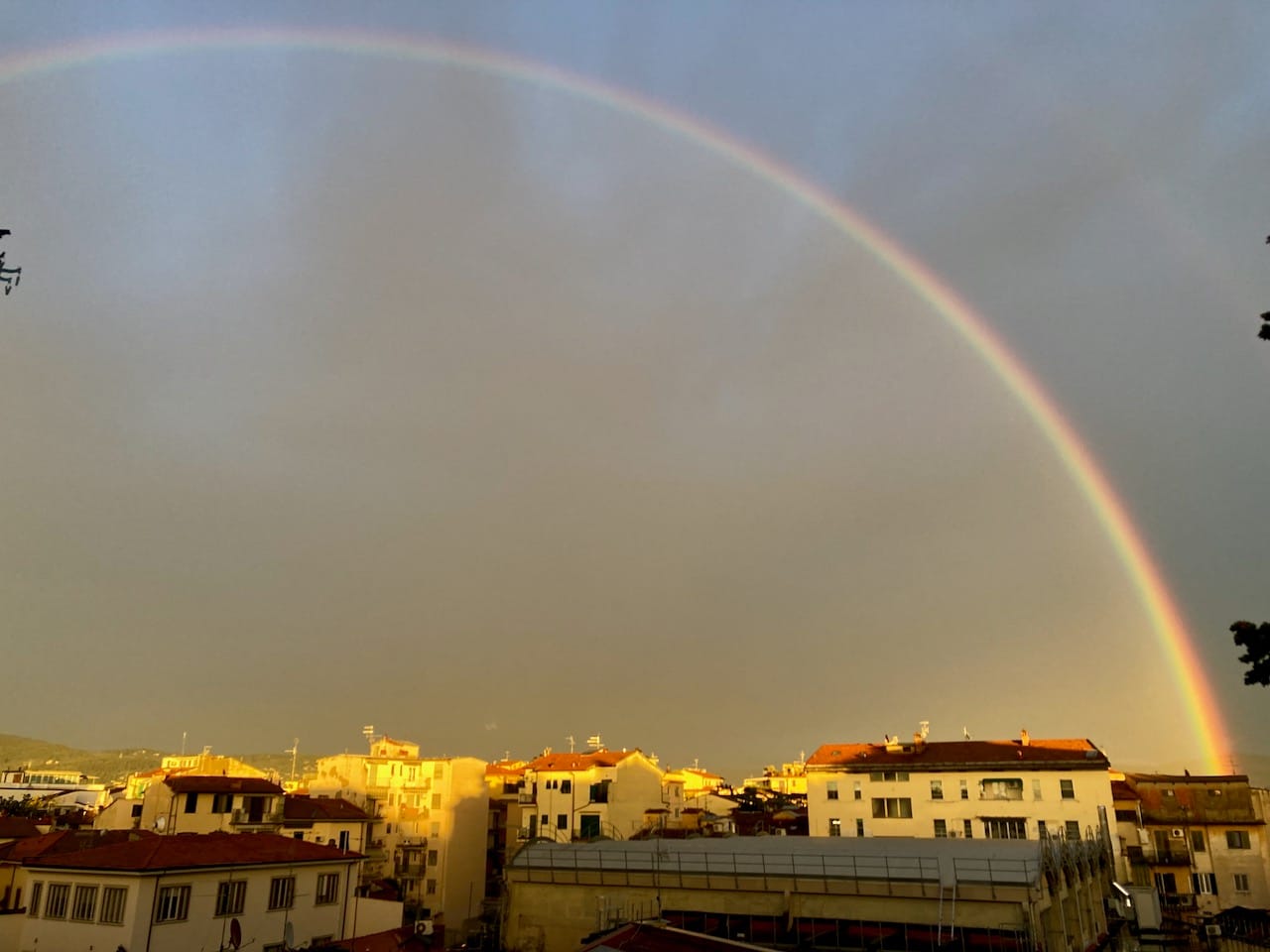
The Lottery Ticket
by Ken Homer • January 2011
My two older sisters hate my father.
I don’t think that hate is too strong a word, but if it is, I do know that at a minimum they have a lot of unfinished business with him.
This is a hard thing for me to deal with given the way I feel about my dad… I wish that they had managed to find a way to accept him as I have.
The path to healing my relationship with my dad has not been an easy one. Long is the list of grievances I could lodge against my old man.
In spite of, or perhaps because of that long list, I have come to appreciate that his failings, their impact on my life, and on the lives of my sisters were due to deficits he struggled with, and not the result of malice or cruelty, which is the interpretation they seem to operate from them when they speak of him.
I made my peace with the fact that the wounds he inflicted on his children were due to the ancestral scars that he himself bore and unwittingly passed along to us. Those wounds were most prominent due to the curse of alcoholism which had set fire to his side of the family tree. Our childhoods were testament to both his love for us and his struggle with forces that far overmatched his abilities. I’ve come to believe that it’s up to us to arrive at a place from which to weigh the success or failure of his efforts at coping with a life of disappointment, despair, outrage, and heartbreak, and to credit him for how he loved his children as best he could.
I loved my dad in spite of all the failures I could so easily cite him for.
And I know that he loved me and felt tremendous guilt and shame for his inability to steward me safely to adulthood – that state of being able to fully care for myself and others – it was simply beyond his ability but I know that he tried.
Today, while cleaning out a desk drawer, I happened upon his wallet.
I drew an unexpectedly deep and halting breath as I picked it up…
Given to me by his girlfriend a year after his death in 1986, I had packed it away a quarter century ago with nary a glance. My stomach clenched with the feeling that the next few minutes were going to be painful. I wondered if I was up to it.
There was a heavy coating of dust on it as I opened the folded leather.
The first thing to assail my nostrils was the distinct odor of must. A wallet is a container for must. There are, after all, certain things that a man must carry in his wallet. Things that our society dictates as necessary to be considered a legal person, chief among them the certificate that legitimizes us because we can operate a machine. Such a strange way to value life!
The order in which I explored the wallet of Justus Theodore Homer evoked a soft, sweet, sepia-toned tale in my mind. It’s a tale tinged with sadness, for his was the life that I held in greater esteem than any besides my own for the first half of my life. I was to bear witness to his worst darkness and despair during the tumultuous years of my adolescence which was not easy.
The first thing I took out was a picture of my niece as a young child. What grandparent does not carry pictures of their grandchildren in their wallet or purse?
The next thing I unfolded was an auto receipt – fitting perfectly with the remembrance of the man I knew who put so much stock in the belief that what you drive reflects some fundamental aspect of who you are.
My dad was a man who believed strongly that when you drive a Cadillac that you are automatically accorded some measure of respect from an unknown but appreciative audience out there somewhere. Because after all, when you drive a Cadillac, you have reached a pinnacle. When you drive a Cadillac, you’ve arrived even before you leave your driveway!
My old man loved that car in a way that some people intuitively grasp, and others will never understand. That was the first car I drove, and he’d have been horrified (as I am upon reflection) if he had seen some of the crazy shit I did when I drove off each time he gave me the keys.
Digging deeper, I found six more pictures of my niece and two of my nephew, his grandchildren by his oldest daughter.
I wonder how my sister would feel if she knew how many hours her father had spent fingering these nine small representations of her children now, long since grown to adulthood. These snapshots were precious to him, I can picture him swelling with pride as he showed them off to anyone who would look.
They were tucked inside the billfold area, causing me to wonder – was my dad intuitively enlightened? Did he secretly understand that money would always be a pale shadow of the true wealth that arises from the joy of seeing your grandchild laughing and giggling and growing into those who will carry on the family line?
Soon the archeology of the layers gave way to the final era of his life. Imagine my surprise and mild bemusement at discovering a concealed weapons permit. My old man carried heat! He had always been afraid of being overpowered. It was a defining characteristic of his that showed up early in my life and left some indelible marks.
In the summer of 1964, when I was but seven years old, the ghettos of the United States of America were going up in flames as the rage of the disenfranchised “Negros” came to a boiling point. We lived outside of Rochester, NY where there was a particularly violent riot that left many dead and wounded and caused extensive property damage. My dad’s response was to take me out to the town dump and place a loaded rifle in my hands. He taught me how to shoot with deadly accuracy at the threats posed by glass jugs, tin cans, and the occasional rat that had the misfortune to come into my line of sight; all the while implanting into my mind images of hate and mistrust for people whose skin color was darker than my own.
Paradoxically, he was kind and caring toward the African American people he hired to work for him in the department stores he managed. They were good people as individuals he told me, you just couldn’t trust them as a race was all. It was a lesson I wish I had never received, especially from him.
I felt a slight tremor of horror as I thought of the man he had become in the final two years of his life carrying a loaded weapon. He was a man with a mind partially unhinged, thanks to the loss of oxygen to his brain during surgery to remove a cancerous chunk of his right lung. No way should he have been allowed to carry a weapon. His eyesight was no longer good and could have easily done someone grievous injury either by mistake or on purpose. I’m so thankful he never needed to draw that weapon.
Finally, I came to the last compartment and the contents began to reflect his final months.
His Blue Cross/Blue Shield card, a couple of appointment slips from doctor’s visits, and a few medical bills that were deducted from his meager savings account at Casco Bank:
$65 office visit
$22 pharmacy
$95 emergency room
The lung cancer eventually made the use of the wallet obsolete, and I was down at last to the final two items of the contents.
A tri-part paper license issued to: Justus T. Homer by the Great State of Maine c. 1985.
It bore all the vital statistics that the state records as worthwhile:
Height: 5' 8"
Weight: 150
Eyes: Blue
Hair: Gray
D.O.B. 8/14/15
The very last thing I found in my father’s wallet was a lottery ticket.
In spite of the odds stacked against him my dad always believed he could be a winner.
Today, some twenty-five years after he drew his last breath his lottery ticket hit the jackpot – he’d become a winner in my heart.
charles blass
Thank you for reading! The next edition will be published on 20 December 2023. Email Pete with suggested submissions.
Grateful appreciation and many thanks to Charles Blass, Douglass Carmichael, Gil Friend, Ken Homer, Todd Hoskins, Kevin Jones, Klaus Mager, Wendy McLean, and David Witzel for their kind contributions to this issue.